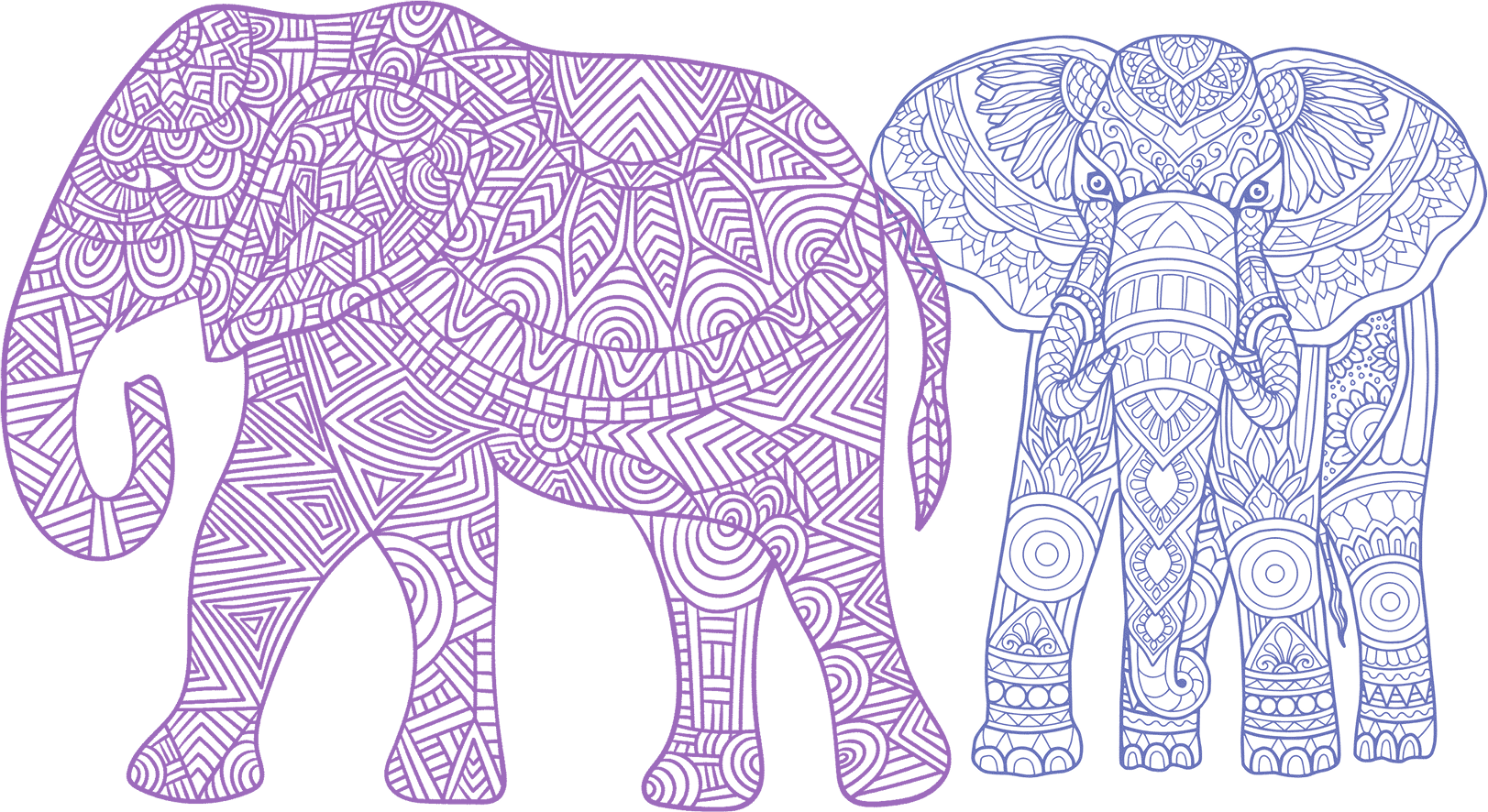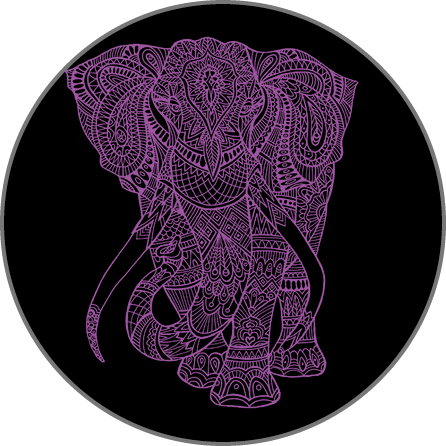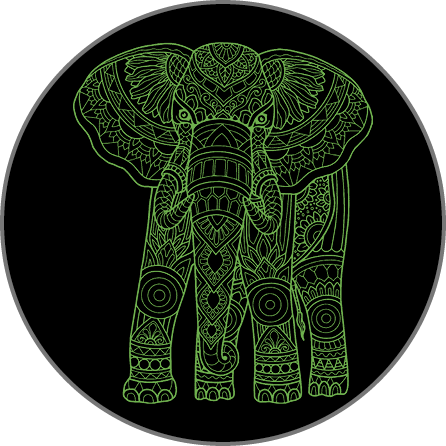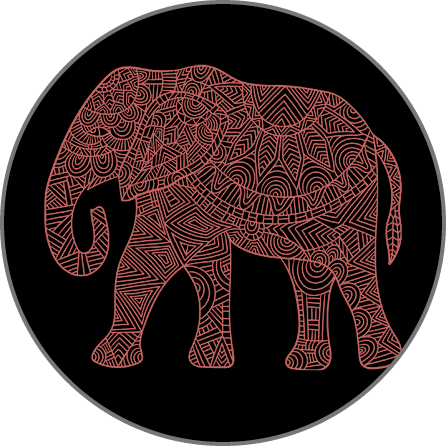Elephant Mandala Animal Art [5]
![]() A Granite Bay Design Microsite: Animal Mandala
A Granite Bay Design Microsite: Animal Mandala
The Elephant
![]()


The Elephant at The Global Sanctuary for Elephants
The Asian elephant often plays a big role in different religious traditions and mythologies, sometimes deemed a deity who symbolizes strength and wisdom. The African elephant is seen as the wise chief who, in African fables, often settles disputes between other members of the animal kingdom. They are considered helpful and benevolent creatures, often portrayed as being wise and just. In the Ashanti tradition, elephants are seen as human chiefs from the past. In the Hindu belief, the Earth is supported and guarded by World Elephants and the deity Ganesha represents wisdom. The rare white elephant is believed to be sacred and symbolizes royalty, particularly in Hindu iconography.

The Spiritual Significance of the Elephant
Elephants represent many things: they’re symbols of luck and prosperity, but they are also powerful beings that use their mighty strength to remove obstacles and negative forces. They also represent wisdom, long life, memory and vitality. Elephants have long been considered among the most intelligent animals on earth, with brains that weigh 11 pounds and have 300 billion neurons, which are similar to human brains in functionality. Spiritual Significance of the Elephant Native to Africa and Asia, the animals have special significance there. The Hindu god Ganesha is believed to be a remover of obstacles. He’s the god of beginnings, whom people worship before starting any major endeavor in their lives. In China, the elephant is a symbol of strength and wisdom. Buddha is often portrayed as an elephant, and his mother is believed to have had dreams of an elephant before his birth. The Ashanti people revere elephants as their reincarnated leaders.

The Meaning of the Elephant as an Animal Totem
These gigantic majestic beings are traditionally considered symbols of good luck, nobility, wisdom, fertility, and protection. All across the world, the elephant has long been considered a sacred animal, although the spiritual symbolism of elephants changes slightly from culture to culture. Some Asian cultures believe that the elephant is a cosmic creature that, much like the turtle in Native American lore, carries the world on its back. Other cultures see it as an earthly animal, but one with a connection to divinity and ancient knowledge. Honoring the elephant in meditation or waking life can help you to access your inner wisdom, own your power, and overcome obstacles with a steady force of strength that you possibly didn’t even realize you had.

The Elephant in India
Elephants in Hinduism and the Indian Culture are a symbol of intellectual strength, and sturdy earthy mental strength. It is a sacred animal and is considered the representation or the living incarnation of Ganesha, the elephant-headed deity riding a mouse. It is the most important of all gods who is invoked before any other gods. The charismatic nature of this being has made it an element of strong symbolism across various cultures all over the world. Asian regions like India and China have dense mythologies which are packed with rich symbolism and multi-layered depictions of various elements of nature. Elephants are found in eminent numbers across these regions, and have been a part of their civilizations for a long time. Evidently, elephants have made way into people’s conscience, and consequently, their art.

About the Animal Mandalas
Animal mandalas range from simple designs featuring cute little puppies and kittens that appeal to children, to detailed works of art ripe with spiritual symbolism. As an artistic tool for children, animal mandalas can supplement learning and provide an outlet for creative expression. For adults, the symbolism and meaning of the design may be more important. Consider the use of the mandala before you choose an animal design.

